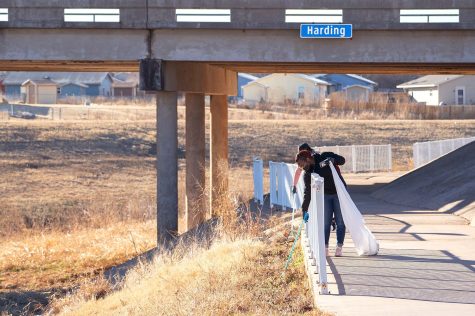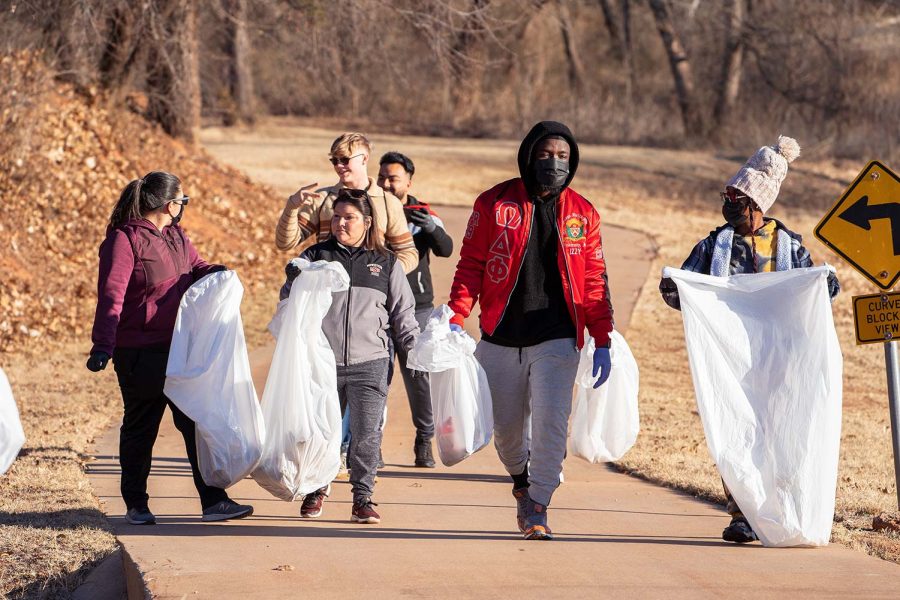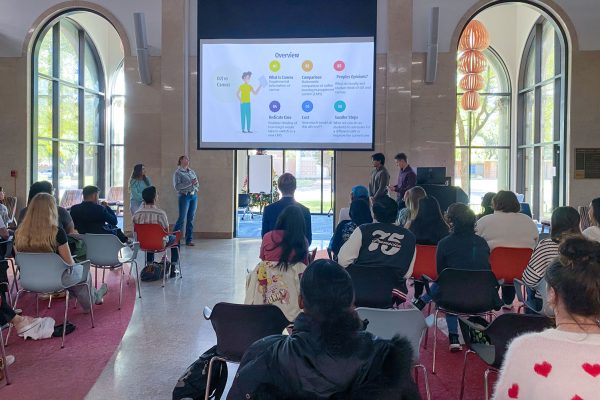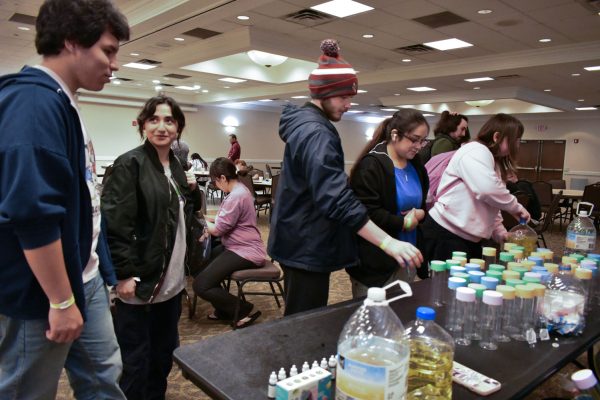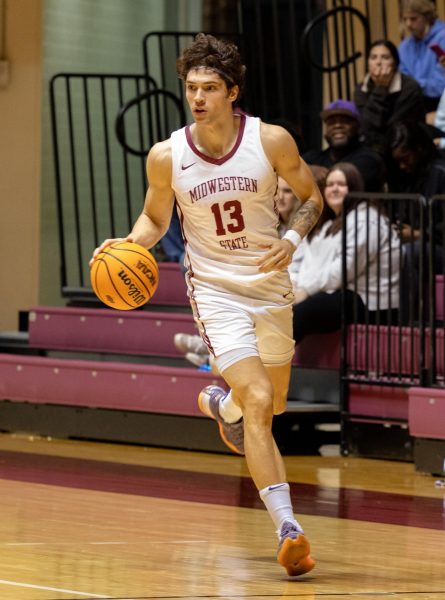Human Rights Week Encourages Mustangs to Take Action
Students socialize while cleaning up at the Martin Luther King Jr. Day of Service, Jan. 17. Photo courtesy of MSU Texas.
MSU’s MOSAIC Cross-Cultural Center celebrated Human Rights Week from the 17 to the 21 of this month with a series of events designed to bring awareness to social justice issues. Human Rights Week events took place across campus and the community, from residence halls to conference rooms to public parks. Jamilah Kangudja, coordinator of MOSAIC programs, remarked on the variety of events.
“We’re trying to get a little bit of everything worked into this week,” Kangudja said.
The celebration kicked off on the 17th with Martin Luther King Jr. day of service, when students had the opportunity to participate in a trash cleanup at Williams Park. This was followed on Tuesday by the human rights awareness booth in Clark Student Center and a critical race theory discussion in the Charlye O. Farris Social Justice Center. On Wednesday, the NAACP held a toiletry drive and the MOSAIC peer educators held a film night and discussion at Legacy Hall. Thursday continued the week with another human rights awareness booth and Friday capped off the week with the Better World Book Club meeting at the SJRC, as well as a movie night featuring a documentary about Black LGBT activist Marsha P. Johnson.
“I think the thing is to take action, so most of the resources that are being provided throughout this time are taking action. So Monday, a day of service, you are actually going out into the community and you’re helping in some way. With the book club, people are reading this book and they’re having active conversation about the things that are going on. I think in that way is how we’re trying to engage students so that we’re doing more instead of talking about doing more,” Kangudja said.
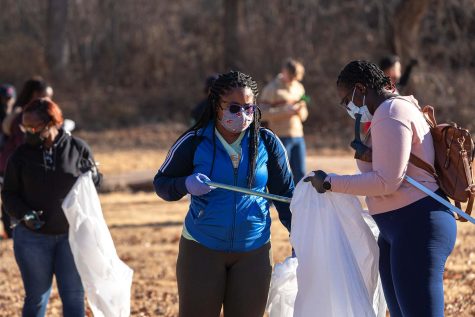
At the critical race theory discussion, MSU students sounded off on human rights week as well, giving their opinions on how they think it impacts campus climate. Exziyah Greenlee, finance junior, said that she found the discussion enlightening.
“It definitely keeps people informed, because when I came here, I wasn’t entirely informed about critical race theory, but now I definitely have some more talking points that I can use with family members and friends,” Greenlee said.
Recognizing human rights week across campus also had an effect on the MSU population. Greenlee also mentioned some of the potential benefits of the week for students.
“It definitely helps with involvement and feeling seen and feeling heard,” Greenlee said.
Cammie Dean, assistant vice president of student affairs, oversaw the critical race theory discussion on Tuesday night. There, she emphasized the importance of discussing potentially controversial topics on campus.
“I think it’s really important to have those conversations because the folks that are here on campus are future leaders and decision makers in communities: for businesses, for nonprofits, for their churches, synagogues, mosques. These folks who graduate from MSU and have college degrees will go out into a world where they have the potential to make a change. And just like we talked about people not always having the right information or good information to make their decisions, I think CRT is a perfect example of how that can go very wrong. So giving space to have these conversations, to talk about what’s being debated and what it might really mean and indicate so that when it’s your turn to make a decision, or your turn to influence a group, that you have something more substantive than just what you heard a pundit spout,” Dean said.
Dean also mentioned the significance of human rights week as a time to remember the injustices of the past and use them as the motivation for future change. She referenced historic civil rights leaders and brought up how their messages have been sugarcoated in the years after their lives.
“I think it’s important to remind ourselves of how far we’ve come, but also things we might need to still work on and I think human rights week is one of those opportunities. To remember Dr. King and to remember his inspiration, Mahatma Ghandi, and to think about the messages that they conveyed and the changes that they were able to influence in their lives, and to choose to embrace those ideals in our own lives, but to make that actionable. A lot of people love… ‘The Dream’ but they love ‘The Dream’ because it doesn’t really ask you to do anything except dream. But a lot of what Dr. King had to say was a lot more actionable and didn’t get finished because of the way that his life ended and it’s on us to finish it,” she said.
Students can still stand for human rights even now that human rights week has ended. Kangudja highlighted the volunteer opportunities available to students. These include Volunteer MSU, MOSAIC and their STAND Councils, and other social justice centered student organizations. The MOSAIC Cross-Cultural Center is located in the Clark Student Center in Room 194. The Charlye O. Farris Social Justice Resource Center is located in Bea Wood Building, Room 131. MOSAIC can be contacted at [email protected] or by calling 940-397-4947.
